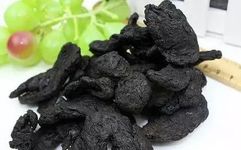Rehmannia Root Encyclopedia
【Also Known As】 Da Shudihuang, Shudihuang.
【Properties】 Sweet in taste, slightly warm in nature.
【Meridians Entered】 Heart, Kidney, Spleen.
【Components】 Contains rehmannioside, glucose, vitamin A-like substances, and iron.
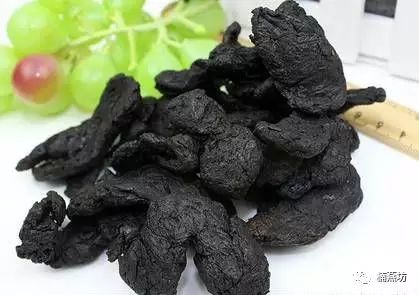
【Pharmacological Effects】 Nourishes Yin and replenishes blood, strengthens the body, promotes diuresis, and has anti-allergic properties.
(1) Anti-thrombus formation: has a blood sugar-lowering effect in experimental diabetes.
(2) Can elevate blood pressure in experimental animals and has a diuretic effect.
(3) Protects the liver and prevents the reduction of liver glycogen.
(4) Inhibits pathogenic fungi in vitro.
(5) Increases red blood cells and hemoglobin in hemorrhagic anemia, stimulating the proliferation of the bone marrow hematopoietic system.
【Clinical Applications】 Mainly used for treating Yin deficiency with insufficient blood, weakness in the lower back and knees, and true Yin deficiency.
(1) For blood deficiency: treats anemia and other diseases primarily characterized by blood deficiency, often combined with Dang Gui (Angelica sinensis), Bai Shao (White Peony) and others.
(2) For Yin deficiency: treats various chronic conditions primarily characterized by Yin deficiency. Patients with weakness, insufficient essence and blood, internal heat, soreness in the lower back and knees, dry throat and thirst, red tongue tip, and thin rapid pulse often use Shudihuang, combined with Shan Zhu Yu (Cornus) to tonify the liver and kidneys; with Fu Ling (Poria) and Shan Yao (Chinese Yam) to strengthen the spleen and drain dampness; with Mu Dan Pi (Tree Peony) to cool the blood and clear heat; and with Ze Xie (Alisma) to promote urination. This is the basic formula for treating Yin deficiency—Liu Wei Di Huang Wan (Six Flavor Rehmannia Pill), effective for various chronic diseases with Yin deficiency manifestations.

(3)For treating deficiency cough: “Shudihuang is an excellent medicine for treating phlegm due to deficiency,” patients with deficiency cough can use Shudihuang decoction instead of tea.
(4) For treating habitual constipation caused by Yin deficiency and dry intestines.
【Dosage】 12-30 grams, can be used up to 45-60 grams daily.
【Precautions】
(1) Shudihuang is sweet and greasy; prolonged use may hinder digestion, possibly causing bloating, diarrhea, and poor appetite. Using with Sha Ren (Amomum) can reduce side effects.
(2) Not suitable for those with unresolved exterior conditions, poor digestion, spleen and stomach deficiency with cold, or diarrhea.
(3) Not to be used or used cautiously in patients with hypertension due to liver Yang rising and liver-kidney Yin deficiency.
(4) Not suitable for those with hemoptysis and phlegm-heat.
(5) Shudihuang soaked in liquor has blood-replenishing properties while also having a certain blood-activating effect.
“Nine Steams and Nine Suns” of Cooked Rehmannia
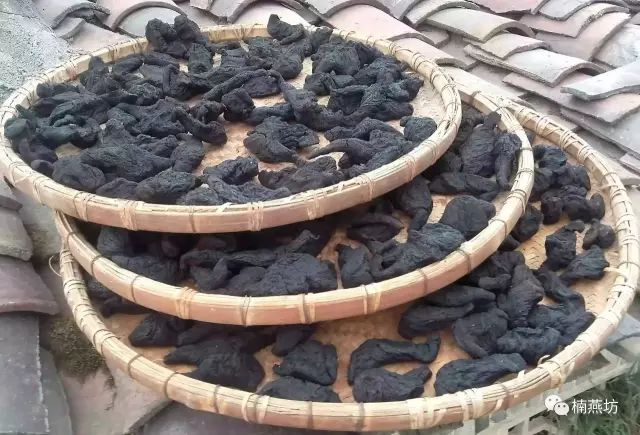
“Nine Steams and Nine Suns” is a commonly heard method of preparing traditional Chinese medicine, but the specific details and methods depend on the type of medicinal material, so most people only know the name but not the actual process. Nine Steams and Nine Suns is a method that uses steaming and sun-drying to correct the medicinal properties of the material or enhance the components of the medicine, thereby better exerting the efficacy of the medicinal material. This method has also been extended to the production of health foods.
Now let’s look at the complete process of the traditional preparation of “Shudihuang Nine Steams and Nine Suns”
Shudihuang originated from the Medicine King Sun Simiao. The unique preparation process of Nine Steams and Nine Suns for Shudihuang is of high quality and has been renowned both domestically and internationally. Rehmannia can be divided into Sheng Di (Raw Rehmannia) and Shu Di (Cooked Rehmannia); Sheng Di is processed through Nine Steams and Nine Suns to become Shu Di.
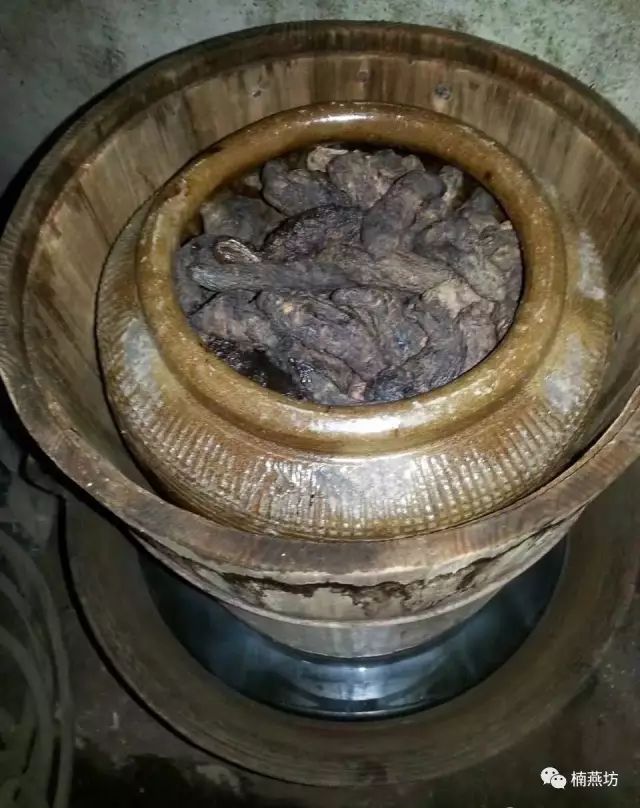
The best quality Sheng Di in the country is from Huaiqing—known in the medical community as Huai Di. The one I selected is the finest Huai Di. (When processing, Rehmannia must avoid iron; only bamboo or ceramic knives should be used.)
Day One
Wash the Sheng Di to remove dirt, dry it, and set aside. Mix with Sha Ren (Amomum), Chen Pi (Dried Tangerine Peel), and Huang Jiu (Yellow Wine), and marinate for 12 hours. The purpose is to allow the auxiliary materials to fully penetrate into the main ingredient, Rehmannia.
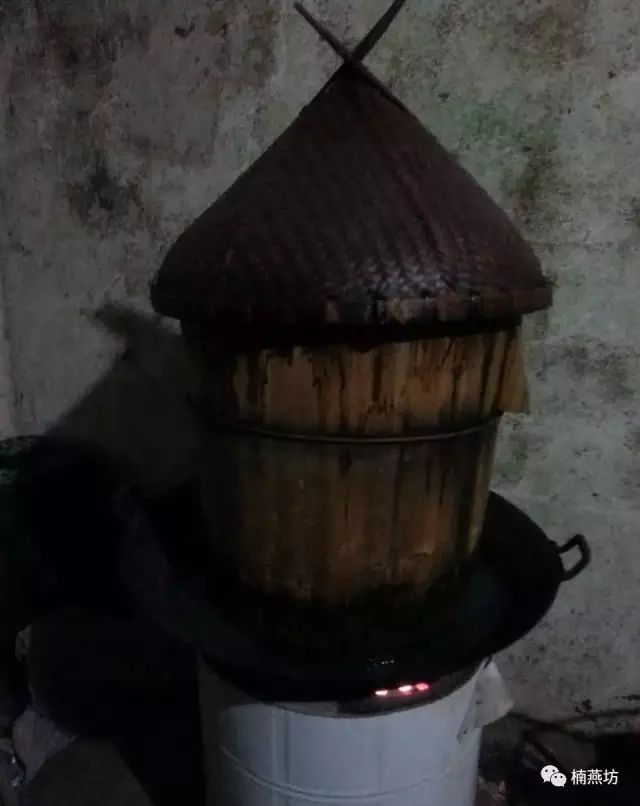
Day Two
Steam for 24 hours with water in the steamer.
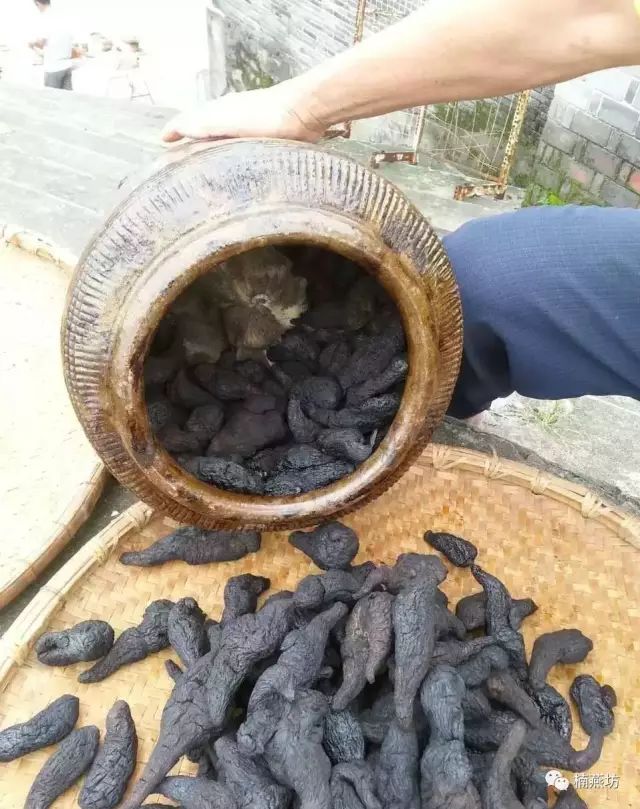
Day Three
Dry and cool.

Day Four
Steam directly in the steamer for eight hours.

Day Five
Take out, dry, and cool. This process is repeated eight times, which means steaming one day and drying one day, for a total of 16 days, plus the initial day, making a total of 17 days.

Day Eighteen
Mix Huang Jiu, Sha Ren, and Chen Pi with Shu Di, seal in a jar, and steam until the surface is oily and the cross-section is black and shiny.

Take out, cool, and dry. The Nine-prepared Shu Di is slightly sweet, slightly bitter, and somewhat sticky; its texture is oily, soft, and delicate. The “Compendium of Materia Medica” states: Sheng Di is very cold and cools the blood; for blood heat, it should be used. Shu Di is slightly warm and tonifies the kidneys; for blood deficiency, it should be used. Men often have Yin deficiency, so Shu Di is suitable; women often have blood heat, so Sheng Di is suitable. Especially Shu Di, medicinally “fills the bone marrow, promotes muscle growth, generates essence and blood, nourishes the five organs, benefits the ears and eyes, darkens hair, and opens the blood vessels,” indeed a great product for disease prevention and longevity.


